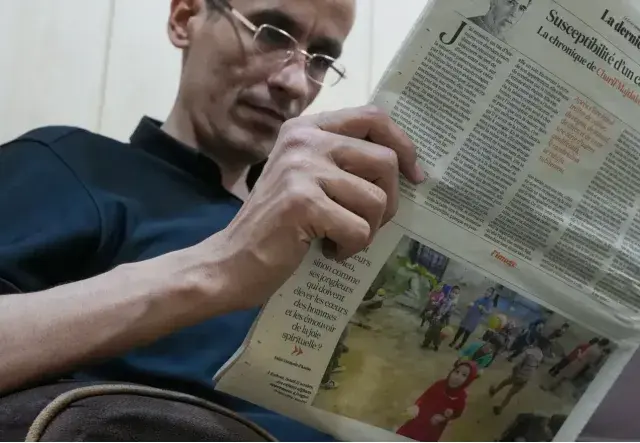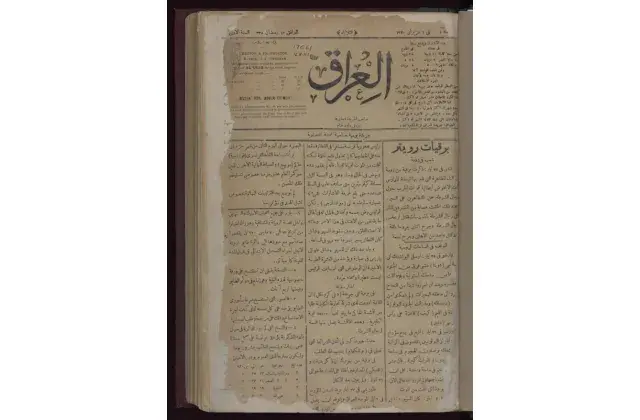Media Freedoms in Iraq and the Challenge of Countering Disinformation and Defamation

Introduction
Recent measurements of Iraq’s media freedoms suggest that Iraq’s freedom of expression is declining. For instance, Reporters Without Borders dropped Iraq from 163 to 172 (out of 180 countries) in their freedom of expression ranking. Moreover, the media and information sphere in Iraq has a recent history of state manipulation, control and coercion. During the period of former Iraqi President Saddam Hussein (1979–2003), the Ba’ath party aggressively controlled the dissemination of information to Iraqi citizens through three state-controlled TV stations, state-run newspapers and radio channels.
The Evolving Landscape of Iraq's Media Sphere Post-2003
Following the American invasion of Iraq in 2003, US-sponsored media outlets and agencies claimed to be fostering a liberal and more open media sphere in Iraq which might offer the basis for the country’s democratic transition. In reality, new media institutions such as Al-Hurra and Radio Sawa sought to promote a US narrative regarding the country’s post-2003 politics.
This period also witnessed the growth of private media outlets and, alongside the growth of new media technologies, Iraq’s media sphere experienced both a significant widening of the kinds of voices and points of view expressed, and simultaneous fracturing of the media sphere into competing, partisan news outlets. Funded by powerful, wealthy political-media moguls, Iraq has seen a siloing of its media along sectarian lines. This has been further fuelled by a lively, but often toxic, internet sphere with social media platforms such as Facebook, Twitter and, most recently, Telegram being used by the previously voiceless.
In recent years, and like in other parts of the world, new media technologies have been increasingly dominated by coordinated misinformation and disinformation campaigns. First developed in the Gulf states around the time of the so-called Arab spring, Twitter bots and similar forms of disinformation have become a mainstay of Iraq’s social media platforms.
Online ‘mob’ campaigns can quickly seep over into the real world and Iraq has seen a number of cases where online rumours have had real world repercussions. For instance, after Riham Yaacoub, a doctor and activist who regularly organised women’s marches, was accused of meeting with American officials, she was murdered in a targeted killing by unknown gunmen in Basra. In another incident, Dr Intidhar Ahmed Jassim, a candidate for the 2018 parliamentary elections, was pressured to withdraw her candidacy after an alleged extramarital sex tape went viral online.
Online disinformation and rumour reflects, and in turn deepens, societal and political dissensus in Iraq. Online divisions can be mapped along pre-existing fault lines between different interest groups and sectarian factions within Iraq, and there is a clear overlap between the power in the online sphere and media-political power within Iraq’s legacy media. This has been further complicated by a range of international players, such as the US, the Gulf states, Russia, China, Iran and Turkey, who have all taken an active interest in Iraq’s media landscape. The online sphere also works to reinforce Iraqi citizens' dire lack of trust in state institutions and individuals. Rumours and hearsay spread quickly across social media pages fuelled by years of corruption and state failure.
Combating Disinformation in Iraq's Media Sphere
How, then, might disinformation be countered in Iraq? First, and as noted above, it is worth recognising that disinformation in Iraq is a reflection of real-world social, economic and political catastrophes. As long as these multiple crises remain, disinformation will continue to take root easily. That being said, a three-policy strategy might be promoted to reduce disinformation in Iraq:
- The implementation of a robust, but just, law to combat disinformation. Iraq has recently seen a draft Law to Combat Cyber Crime, but this has faced criticism for its potential use of targeting government critics and curtail the freedom of expression. The draft law should be redrafted so that it makes technology multinationals such as Twitter, Facebook and Telegram accountable for the dissemination of disinformation on their platforms, while preventing its instrumentalisation as a tool to police the online sphere by the government. Such a law should be particularly focused on election-related disinformation.
- Providing better protection for independent media and journalists. Media development agencies should work with local journalists and alternative media to help them counter attacks on their staff and offer training on countering fake news.
- Finally, a public information campaign should be instigated to educate Iraqi citizens of all walks of life in how to spot fake news and disinformation. Such a campaign needs to be sensitive to the Iraqi context and how fake news and disinformation in Iraq is often cut across by regional, ethnic and sectarian loyalties and biases.
This article was written by Achref Chibani and is licensed under CC BY-NC 4.0.






